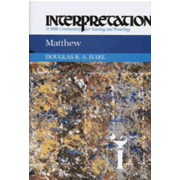AS PEOPLE of God made saints in the kingdom through our baptism, today we read that which was taught to the early Church. We delve wonderfully into the Sermon on the Mount as told in the Gospel According to Saint Matthew. In this commonly quoted reading, we hope to discern what was specific to Matthew’s faith community… so that we may carry from the text a few messages for our own time…
Seeing the crowds, he (Jesus) went up on the mountain, and when he sat down his disciples came to him.
Antioch and Burbs
We study a well-known biblical text from Matthew today. Many in a needlepoint club have sewn these words colorfully so that they decorate the walls of homes. The Sermon on the Mount, likely having common source to the Sermon on the Plain as found in Luke's gospel, magnificently delivered reality and Christian prophecy to listeners. Recorded here by the gospel and preserved by their community, the text delivered eternal truth to our Lord’s growing Church. For those who seek a comparative study of Luke and comments related to that gospel (Luke 6:12,20-23), please know that the study of that text in Luke may be found in last year’s study. Here today, however, we concentrate on that message specifically spoken to Matthew’s community. For example, in comparing the two readings, we note a difference immediately in the first blessing. We find that the witness of Matthew contains the words, “in spirit”; where Luke did not use these. Since we do not have the source text and do not know which is the original, we can only theorize, We first ask ourselves, “Was Matthew addressing Jewish Christians who felt shaky about breaking away from the large, established and moneyed synagogue?” Along the same path, "Was it that Matthew may not have wanted to offend wealthier members of the community adherents, knowing that financial resources were to be needed for future ministries?" In our own day, how many leaders of a modern church community soft-pedal a particular issue based on societal influences?
Click Here For Lutherans For Life
I consider that this same softness may be present here in Matthew, due to the influence of stronger Pharisaic forces that afflicted the Antioch-centered church. This soft perspective may indeed have been true since the gospel from Antioch in Syria displays more Jewish historical connections, such as exhibited by its first chapter.., for the introduction includes the genealogy of Jesus.
Therefore a rather Pharisaic “Follow the Money” mentality of retaining power may have been a philosophy put to work in the comfortable parent synagogue. It could be that Matthew tempered the issue a bit... and told only of our Lord’s comforting those who are the "poor in spirit", rather than blanket stating them as the "poor". Also, consider that a heavy spiritual burden likely did exist. My opinion is based on the fact that Matthew remained tied to matters spiritual as the second blessing is pronounced. We note a differing of subject order in listing those who are “blessed”. Where Luke addressed hunger, Matthew next listed mourning. I ask therefore, "Was this next subject given higher precedence as Matthew's community went through great spiritual torment and spiritual mourning? Did this mourning for the familiar result deliberately or incidentally in the reordering of the original "Q" sayings source document, subsequently forming a differing sequence from the Lukan witness? Was Matthew ministering to those persons fevered by their recent separation from the main synagogue?"
As these blessings progress in the reading, we realize a repeated bent away from the earthly... focusing rather on the spiritual. Matthew seemingly favored an expression of spiritual strengthening. Rather than just physical hunger, a spiritual hungering for righteousness is found. This stress toward the spiritual portion of personhood, leaves the Hebraic thought patterns, promoting the Greek dividing of individuals into the three-facet body, mind and spirit view. Subsequently, rather than further mention of the poor, as in Luke.., Matthew stated those who were pure in heart. Finally, those who were scorched in spirit by the ashes of peacemaking efforts in the synagogue were encouraged.
 |
The Harbinger II: The Return By Jonathan Cahn |
Finally and Eternally…
Lastly, we see a shift in the emphasis from what was present at the time of the Matthean writing, to that which was to come. Matthew echoed our Lord’s prophetic words, and thus highlighted the present and prospective growing persecutions that lay ahead for his Christian community. Consequently Matthew was prophetic, and he invited the people of God into the prophetic task. Herein we have great agreement with Luke's account, as found with his timeless pronouncement of the final blessed outcome. The result was that from the latter decades of the first century came the words… “great is your reward in heaven.”
We need pay special attention here to this final similarity in the gospel accounts, for the prophecy that was present back then... still applies to us. We live in a very active and interactive world. Even while the Internet carries this lesson which you now read, we see a modern fact unfolding. That which is spiritual quickly affects and reforms that which is temporal. Our spiritual faith that provides us with the salvation message by the Spirit, through Jesus Christ, given to us by God through grace and expressed in the world… first reforms us, takes root in us, and very fast becomes challenged by the Satanic.
Visit Pastor's Personal Web Site
However, the gospel message strengthens us as we speak and learn. We modern Christians who continue to encounter the mayhem of this world’s values, shall surely see tensions rise and fall. Consequently, during the earthquakes of demonic power struggles, by the power of the Holy Spirit those who deem themselves as rich or poor, earthy or spiritual, urban or diasporadic, though we may be seen as a large or small in faith community… find certainty and agreement through Holy Scripture rightly interpreted. In this finality we are kept certain.
Indeed! Baptized Christians who take up the cross and the task of evangelical pursuit shall certainly be oppressed by doing so… as told by both Matthew and Luke. But, just as we were promised.., that which we do today shall not go into poverty tomorrow. Blessed are the poor in spirit who are wrongly impoverished by this world’s greed, and blessed are the poor in spirit who wait for the advent of God’s kingdom. We shall find that GREAT is the reward! So it is written, and so it shall be.
Please be invited to watch this video...



No comments:
Post a Comment